Optimizing Defense Solutions for Enhanced Performance, Reliability, and User Responsiveness
Advances in Defense Technology
The defense industry is currently experiencing a surge of technological innovations that are transforming modern defense technology capabilities. Advances in artificial intelligence, cybersecurity, and unmanned systems are creating a more sophisticated Internet of defense technologies, to enhance strategic operations and security measures. Central to this transformation are the systems as they deliver real-time information to frontline personnel, enabling more precise and efficient operational tactics, improving situational awareness, and strengthening defense mechanisms.
Challenges for Tablets in Defense Environment
In the fast-paced and high-stakes world of defense technology, every second counts, and any delay could result in irreparable harm. Traditional tablet computers often struggle to meet the rapid responsiveness demanded by the defense sector. The challenge of improving device responsiveness involves three aspects, which are critical to ensure that the devices perform optimally and timely under demanding conditions:
- Rapid Boot-Up and Resume Times
In critical situations, any delay in booting up or resuming can have serious consequences, potentially impacting mission success and personnel safety. Therefore, it is essential that systems can power on and become fully operational almost instantaneously. This capability ensures that users have immediate access to all necessary systems, applications, and real-time data. Rapid boot-up and resume times are essential for effective decision-making and swift responses, and the device must achieve this without compromising performance or stability, maintaining high functionality even under pressure.
- Power Consumption Management
Prolonged missions require devices that can last without frequent recharging. Efficient power management is crucial to extending battery life while balancing the need for high performance. Systems must be designed to consume minimal power while in standby or idle mode, conserving energy when not in use, and must quickly resume full functionality when needed. Achieving this balance requires advanced power management solutions.
Devices used in defense environments usually handle sensitive information that must be safeguarded against unauthorized access and cyber threats. Ensuring robust security measures without sacrificing responsiveness is a significant challenge. One crucial aspect is secure boot, which ensures that the firmware and operating system are verified for integrity before loading. This process must be executed swiftly to balance strong security with the need for quick device startup and operation.
DFI’s Value-added Services for x86 System-on-Modules(SoMs):Advancing Mission-Critical Solutions
To meet the evolving demands of mission-critical system, DFI integrates the latest Slim Bootloader and Low Power Standby & Fast Resume technologies into their x86 SoMs. These innovations optimize boot-up times, power consumption, and resume speed, delivering superior performance to DFI’s valued customers.
Slim Bootloader for Rapid Boot-up
Slim Bootloader is an open-source firmware solution that emphasizes simplicity, efficiency, and security, providing a fast and secure boot process for modern embedded x86 SoMs. Traditionally, x86 systems are slower to boot compared to ARM systems due to their complex architecture and dependence on BIOS or UEFI firmware. By integrating Slim Bootloader, DFI cuts boot times for their x86 systems by up to 60%, making it almost as fast as ARM platforms.
Slim Bootloader serves as an ideal alternative to traditional BIOS or UEFI firmware. The customizable nature of Slim Bootloader allows for significantly reduced boot-up times by enabling only necessary functions and hardware initialization during startup. Its robust security features ensure that each stage—from hardware through firmware to the operating system and software—is verified before execution, meeting the high standards required for rapid startup and stringent data security.

Low Power Standby and Fast Resume Technology
DFI's professional BIOS team has harnessed Microsoft's Modern Standby technology, combined with their exceptional integration capabilities, to develop the Low Power Standby and Fast Resume Technology to enhance system performance with efficient power management. Unlike the traditional S3 power state (known as "Sleep"), Modern Standby provides a more efficient low-power idle state, allowing devices to be always connected, keep the data up-to-date and be ready for immediate use while conserving energy.
Based on this, DFI’s Low Power Standby and Fast Resume Technology reduces power consumption to 1 Watt during sleep and ensures devices resume operation within 1 second. Even in Windows OS Idle mode the device consumes less than 2 Watt power. This enables users, particularly in the defense sector, to quickly resume their devices in high-pressure situations, saving valuable time and extending battery life while conserving energy resources.

Use Case
In the case of the tablets for the defense application, DFI offered value-added services to help the client overcome the challenges of boot-up speed, resume time and reducing power consumption on the COM Express Compact SoM. By replacing the traditional AMI BIOS with Slim Bootloader, the tablets achieved faster, more secure boot times. Additionally, addressing customer's application and environmental requirements, DFI harnessed its Low Power Standby and Fast Resume Technology along with meticulous BIOS optimization to maintain the system’s standby power consumption under 1 watt and resume operation within 1 second. These enhancements not only meets but exceeds the client’s stringent requirements, delivering a highly responsive, energy-efficient and secure solution for the x86-based tablets.
DFI’s Value-added Services for x86 SoMs
DFI integrates design, manufacturing, and verification to achieve vertical integration, providing value-added services to accelerate the completion of customers' final products. These services enhance system efficiency and security, particularly for mission-critical applications in defense and industrial automation.
Preload Slim Bootloader
Upon customer request, DFI can preload Intel x86 SoMs with the "Slim Bootloader" to replace the conventional AMI BIOS. This open-source boot firmware is tailored to the Intel x86 architecture and features compactness, security, and high speed. It caters to system integrators and is particularly suitable for applications in defense, factory automation and other areas.
Now a series of DFI SoMs are supporting Slim Bootloader:
|
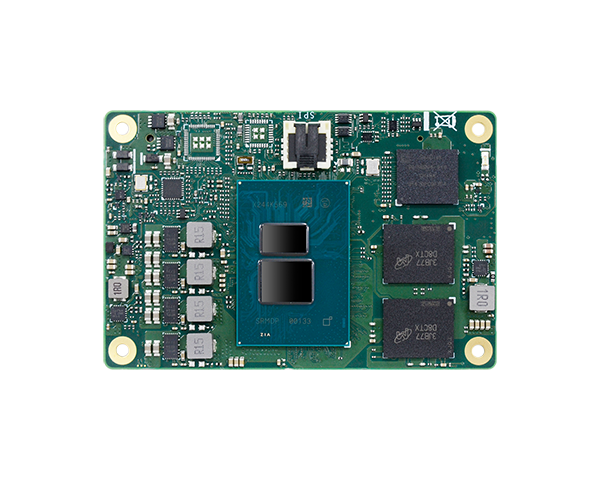
ASL9A2
- Intel® Atom® Processor Amston Lake Series
- Dual Channel LPDDR5 4800MHz up to 16GB
- High Speed Ethernet: Supports 100M/1000M/2.5Gbps
|
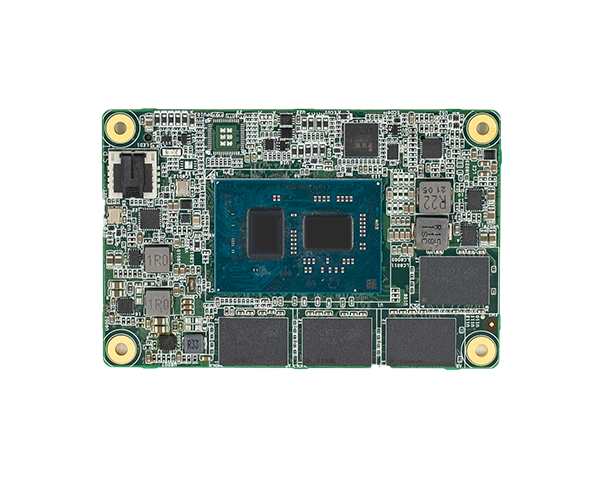
EHL9A2
- Intel® Atom® Processor Elkhart Lake Series
- Dual Channel LPDDR4X 3200MHz/4267MHz up to 16GB
- 1 LVDS/eDP, 1 DDI (HDMI/DP++);Supports dual displays: DDI + LVDS/eDP
|
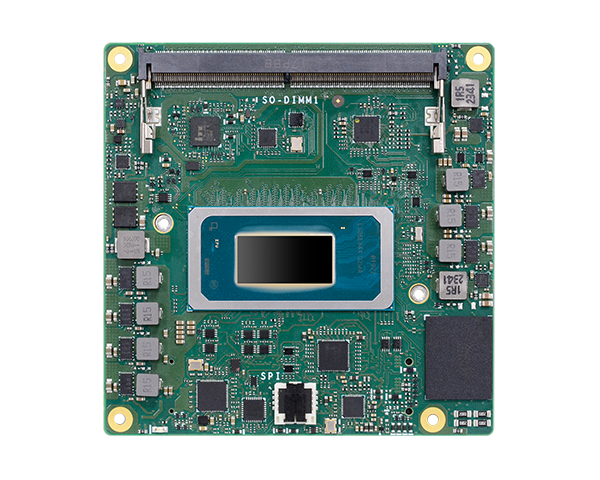
MTH968
- Intel® Core™ Ultra Processor (Meteor Lake: U/H-series)
- Dual Channel DDR5 5600MHz SODIMM up to 64GB
- Multiple Displays: 1 VGA + 1 LVDS/eDP + 3 DDI
|
|
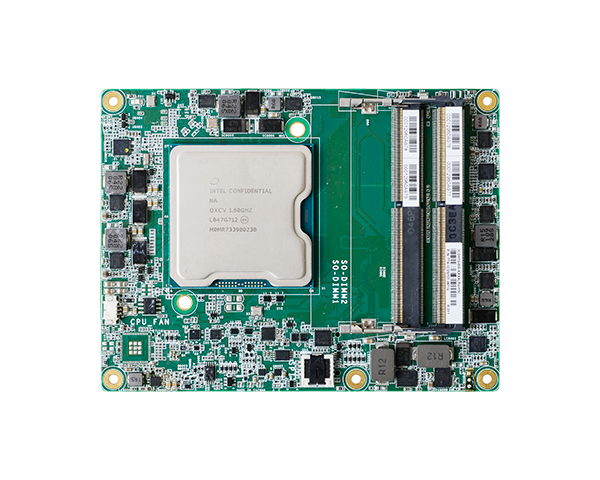
ICD970
- 3rd Gen Intel® Xeon® Processor D-1700 Family
- Default 2 260-pin DDR4 2666 SO-DIMM, dual channel mode up to 64GB, 3rd DIMM by request
- 10GBASE-KR: Support up to 4 x 10GbE Mac ports
|
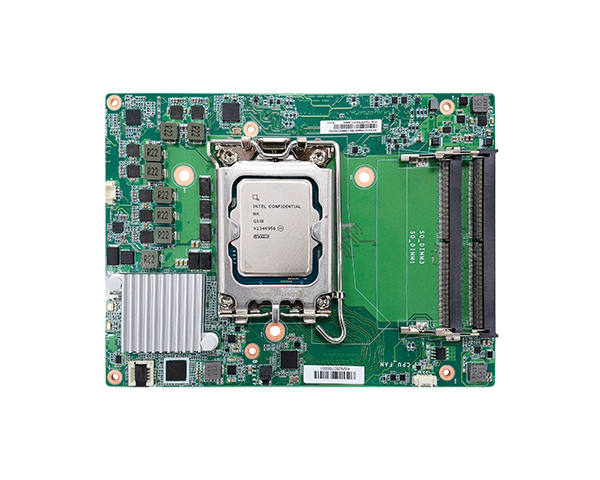
RPS9HC-R680E/Q670E/H610E
- 14th/13th Gen Intel® Core™ with Intel® R680E/Q670E/H610E Chipset
- 4 DDR5 SODIMM 3600MHz up to 192GB
- DDI supports up to 8K
|
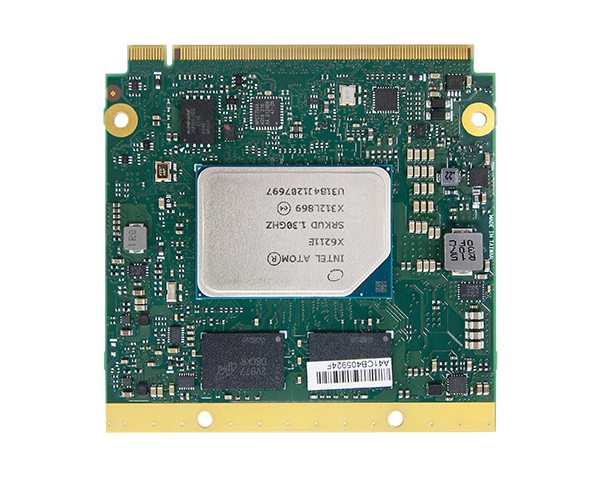
EHL701
- 4GB/8GB/16GB LPDDR4 Dual Channel Memory Down
- Dual Displays: 1 DDI* + 1 eDP/LVDS
- DP++ resolution supports up to 4096x2160 @ 60Hz
|
Low Power Standby and Fast Resume
Upon customer request, DFI can preload Intel x86 SoMs with our Low Power Standby and Fast Resume Technology on the BIOS to improve power efficiency and performance. This Windows-based solution is specially designed for Intel x86 architecture and provides an always-connected, always-on experience with adaptive power management. It’s tailored for mission critical applications with exceptionally high demands for response time and power efficiency.
So far some of DFI SoMs are supporting the Low Power Standby and Fast Resume Technology, other Intel platforms, are in preparation and available on request at short notice.
|

ASL9A2
- Intel® Atom® Processor Amston Lake Series
- Dual Channel LPDDR5 4800MHz up to 16GB
- High Speed Ethernet: Supports 100M/1000M/2.5Gbps
|

EHL9A2
- Intel® Atom® Processor Elkhart Lake Series
- Dual Channel LPDDR4X 3200MHz/4267MHz up to 16GB
- 1 LVDS/eDP, 1 DDI (HDMI/DP++);Supports dual displays: DDI + LVDS/eDP
|
